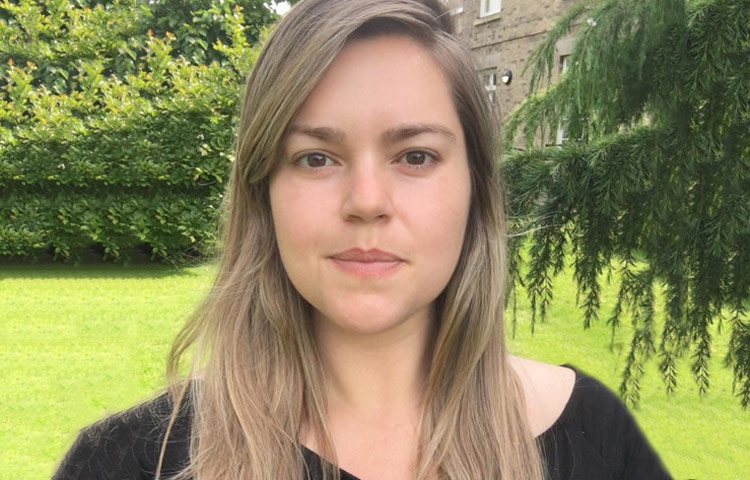Soft Bones, Inc., an organization dedicated to providing information, education and support to those affected by hypophosphatasia (HPP), is pleased to award its annual Maher Family Grant to Flávia Amadeu de Oliveira, PhD, a postdoctoral associate at the Millán Lab at Sanford Burnham Prebys Medical Discovery Institute in La Jolla, California, to study the potential of gene therapy in HPP.
The study objectives look to determine the efficacy of viral vector delivery of mineral-targeted tissue non-specific alkaline phosphatase (TNAP) to treat late onset or adult HPP.
“I have a long-standing interest in bone biology, especially in the molecular mechanisms that regulate bone homeostasis,” said Dr. Amadeu de Oliveira. “Overall, my goal through this research proposal is to test if chronic administration of mineral-targeted TNAP in HPP mice with superimposed chronic kidney disease, which manifests vascular calcification, may have adverse consequences. In doing so, I will also attempt to validate viral vector delivery of mineral-targeted TNAP to correct the soft bones disease in late-onset HPP mice. Overall, this study will contribute to devising safe and improved therapies for HPP,” she continued.
The Scientific Advisory Board for Soft Bones carefully considers grant applications and this year solicited submissions that would help advance gene therapy in HPP.
“The implications of this work may extend to all forms of HPP, not just adult,” says Dr. José Luis Millán, Soft Bones Scientific Advisory Board member and Professor of Human Genetics at Sanford Burnham Prebys Medical Discovery Institute. “The findings could be relevant to the entire HPP spectrum.”
More information about hypophosphatasia, past grant winners and existing research can be found at www.softbones.org.
About Hypophosphatasia
Hypophosphatasia is an inherited, ultra-rare, metabolic (chemical) bone disease of broad-ranging severity that causes life-threatening disease in approximately one per 100,000 live births. Depending on the severity of the skeletal disease, symptoms can include deformity of the limbs and chest, pneumonia, and recurrent fractures. While there is currently no cure for hypophosphatasia, treatment is directed towards preventing or correcting the symptoms or complications.
About Soft Bones Inc.
Soft Bones was founded in 2009 to provide information and to establish a forum to educate, empower, and connect patients living with hypophosphatasia, their families, and caregivers. The Foundation also promotes research of rare bone disease through awareness and fundraising efforts. Under the leadership of Deborah Fowler, Soft Bones has raised awareness around the world, including advocating for the disease to receive the policy recognition and research funding it deserves, by bringing attention to children affected by hypophosphatasia around the globe.
Contact:
Media Inquiries:
Soft Bones, Inc.
Denise Goodbar
(973) 723-0549
denise@softbones.org
SOURCE Soft Bones, Inc.
